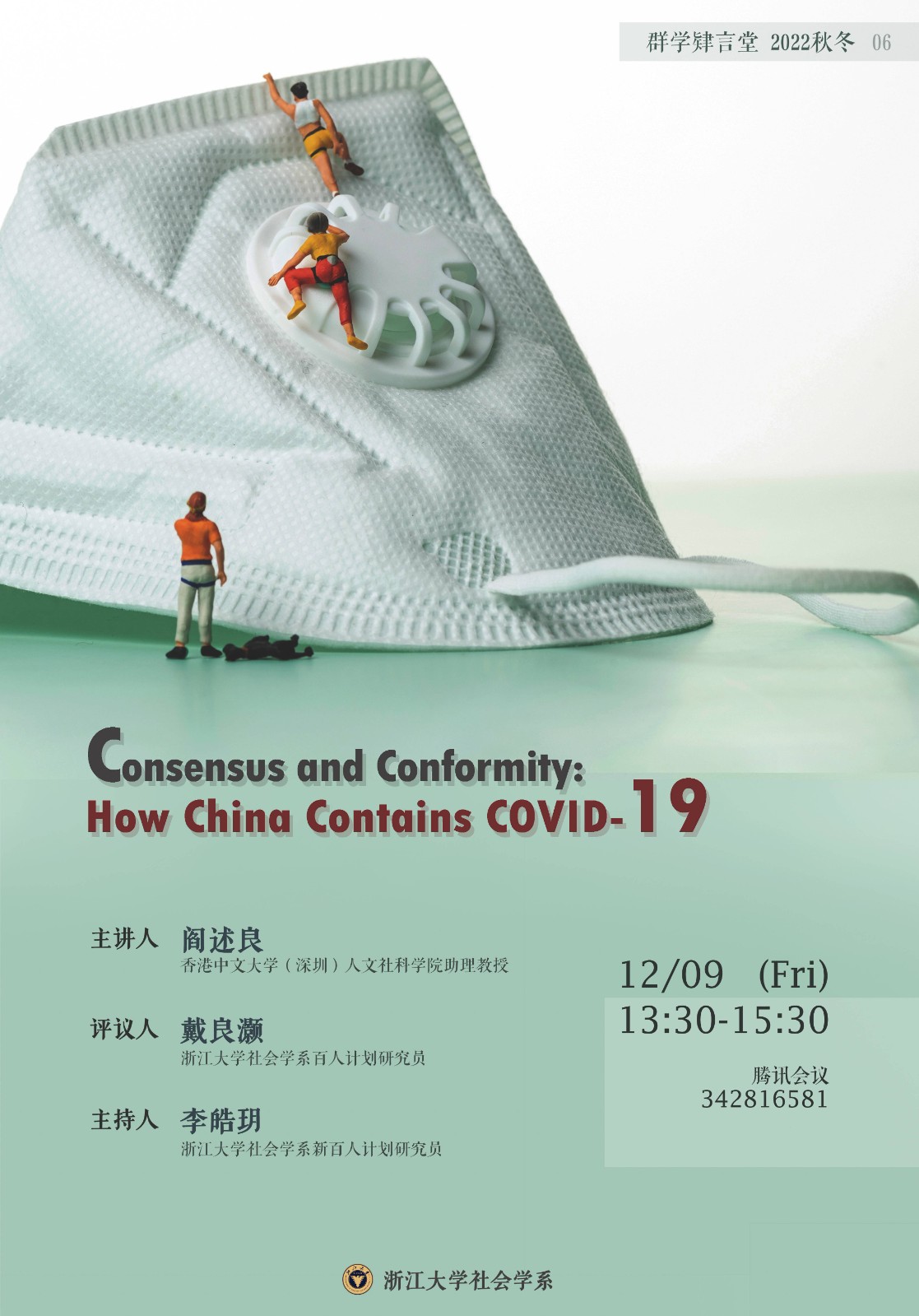
群学肄言堂2022秋冬06期
主 题:Consensus and Conformity: How China Contains COVID-19
时 间:2022年12月9日(周五)13:30-15:30
地 点:腾讯会议-342816581 *会议密码不对外开放
概 要:As the first epicentre of COVID-19, China emerged out of the situation stronger. When the pandemic ran amok in most parts of the world, the infection rate inside China has steadily declined reaching towards zero. Against this backdrop, this study asks three research questions. First, why was China able to contain pandemic? Some intuitive answers originate from analyses on cultural and ideological differences and regime types. For example, in addition to tracing and testing, China was more effective in implementing massive lockdowns and restricting people’s movement. If a strict top-down approach was to shape societal conformity, we should expect societal pushback. But pushback was sporadic without the support of the masses. This situation leads to our second research question, why didn’t the Chinese society break or engage in forms of resistance? In fact, we observe a strong societal consensus on pandemic control actively courting and encouraging strong governmental intervention. Therefore, we argue that it is precisely this societal-state interaction that allowed for the emergence of a certain type of effective pandemic control. This leads to our third question, how the Chinese state—decisionmakers and bureaucrats—and society were able to meet in the middle. We propose a new theoretical framework on crisis management and governance that transcends traditional ones based on ideological, regime and cultural divides. For us, state-societal interaction involves three parties—decision-makers or political leaders, implementers or bureaucrats and citizens and social organizations. In an ideal situation in which crisis management is effective, there must be a consensus on all parties to pursue certain types of solutions, and in the process, political leaders conform bureaucrats and the society towards a desired course of action. Lacking consensus or conformity may lead to inaction or fragmentation.
主讲人:阎述良
多伦多大学政治学博士,现任香港中文大学(深圳)人文社科学院助理教授。研究领域包括国际和比较政治经济学、产业政策、科技创新。当下重点关注中国高铁创新体系的行程以及国际化。
评议人:戴良灏
哥廷根大学社会学博士,现任浙江大学社会学系“百人计划B”研究员、副教授。研究领域包括科学社会学,科学与技术研究(STS),社会网理论,认知图等。当下重点关注科学知识生产过程中的跨学科合作问题和学术劳动问题。相关研究论文和报告发表在Nature,Natureindex,ACM-KDD,EASST Review,Social Network Analysis: Interdisciplinary Approaches and Case Studies等刊著上。
主持人:李皓玥
纽约州立大学Albany分校社会学博士,现任浙江大学社会学系“新百人计划”研究员。研究方向包括文化社会学,环境社会学,艺术社会学,媒体社会学,全球化等。聚焦于中国环境治理实践,她目前正致力于Crisis, Legitimation and Contention的专著写作。